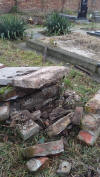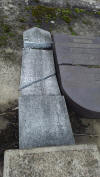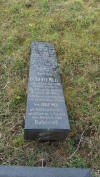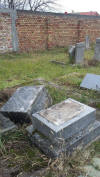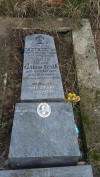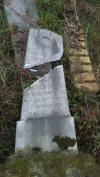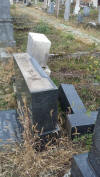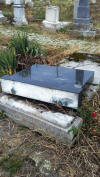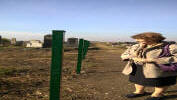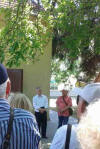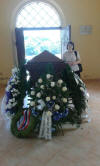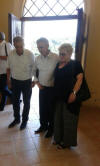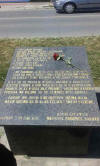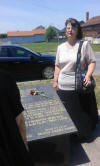Vandalism at the Jewish Cemetery in Pančevo
The Jewish Community in Pančevo is deeply upset and saddened by the event that
took place between the night of December 8 and 9, 2017, when 47 monuments were
demolished and damaged at the Jewish Cemetery in Pančevo. The monuments are
mostly old, some date back to the end of the 18th century and represent one of
the rare cultural and historical heritage of the Jews of Pančevo.
Once the investigation is over and official report is received on perpetrators
of this heinous crime the JO Pančevo will issue the statement.
https://www.youtube.com/watch?v=BAaq4V972XY
http://www.politika.rs/sr/clanak/394314/Oskrnavljeno-Jevrejsko-groblje-u-Pancevu
Two Jewish cemeteries enclosed in South Banat
After The European Resolution on the
Protection of Jewish Cemeteries has been accepted, representatives of the
European Initiative for the Reconstruction of Jewish Cemeteries visited the
Jewish cemetery in Bela Crkva and Debeljača earlier this year to review the
situation and the possibility that the remaining monuments in these cemeteries
could be protected by the fence and placing an appropriate memorial plaque.
After the visit, attended also by the representatives of the Jewish Community of
Pančevo (on whose territory the cemeteries are located), it was decided that
these two cemeteries should be included in the protection program. Works on
fencing were completed in October, so that today they represent the cultural
heritage of the Jews who before the Holocaust lived in those places in large
numbers. More information on this European Initiative can be found a
http://esjf-cemeteries.org
Đakovo commemoration
4 June, 2017.
The commemoration of the Holocaust victims from the Đakovo concentration camp
was attended by Vedrana Montijas, a member of the Jewish Community of Pančevo,
with his family from Belgrade, Sarajevo and Israel. Vedrana's sister Blanka Tene,
born Kabiljo, was especially honored to lay the wreath together with Robert
Sabadoš, the president of the Serbian Jewish Federation. After the ceremony, R.
Sabadoš held an appropriate speech.
Concentration camp in Djakovo was founded on December 1, 1941 in the Independent
State of Croatia, primarily for Jewish women and children, including Serbian
girls. The camp worked until July 7, 1942. Through the camp, about 3,000
prisoners passed, who were tortured in a terrible way. About 650 of them died in
the camp, while those surviving, after the detention in the camp were
transferred to other camps and killed. The bodies of the dead were individually
buried in separate graves at the cemetery in Đakovo.
More information about the Djakovo camp Cemetery can be found at:
http://elmundosefarad.wikidot.com/4-groblje-logorskih-zrtava-u-dakovu
Jews
have lived in Pančevo
even during the Turkish reign from 1494 - 1734, but the first saved data of
their presence here originate from the thirties of the 18th century. Provincial
Administration in 1729 gave permission to David Löwy, of unknown origin and
occupation, to settle down in the town, together with his household members. In
1730 custom officers in Sremska Mitrovica registered Jacob Solomon, a Jew from
Pančevo, a grain merchant, who arrived there in a ship with a cargo of barley
and was required to pay customs duty.
The
ruler of the Habsburg dominions
Maria Theresa in 1743 introduced a tolerance fee for Jews, and
within the Military Border it remained effective until the demilitarization in
eighties of the 18th century. Greater number of Jews, with many difficulties,
settled down in Pančevo after the defeat of the Turks in the war against
At the cemetery there is a monument to Alexander
Hacker, an upholsterer from Pančevo, who was the first Jewish victim of fascism.
He was killed on April 22, 1941. The monument was restored in 2014.
The sacred society Chevra
Kadisha was established in 1833. Some sources specify even the year 1747, and
the others the year 1867. It is believed that in 1867 the Statute of the Society
was accepted or the working permission obtained.
Funerals are still carried out at the Jewish cemetery
in Pančevo. It is located at Josif Marinkovic Street No.15. At the entrance it
was recently posted a new plaque with the working hours. It is opened from
Sunday to Friday and is closed on Shabbat and Jewish Holidays.
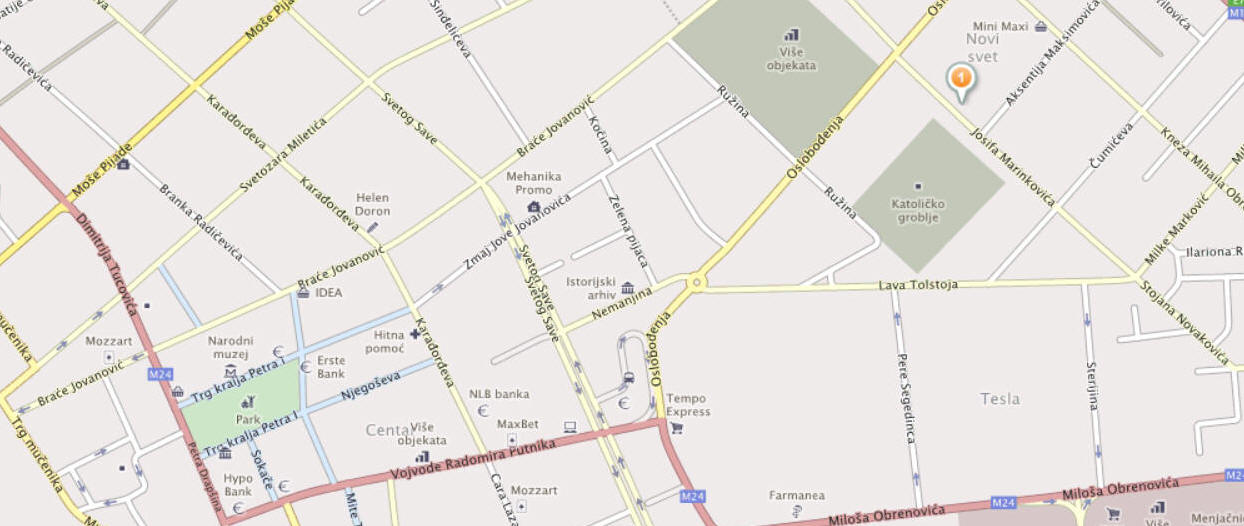
The Jewish community of Pančevo is kindly appealing to all who are able to help with any donation for the Jewish cemetery maintenance. Our Chevra kadisha has no funds set aside for maintenance and only with support of relatives and friends, whose loved ones rest in peace at this place, we could ensure that the Cemetery will not get into condition before the clean-up operation in October-November 2014.
Chevra kadisha of the Jewish community of Pančevo
For further info – email: jopaa@open.telekom.rs, phone +381 13 355 822
In memory
of her family and grandmother Irma Iritz (born Kraus), who was buried at
the Jewish cemetery in Pančevo, her granddaughter Irma Iritz from Rome
gave a contribution to the maintenance of the cemetery in the amount of
225 EUR.
The Jewish Community is very grateful.
